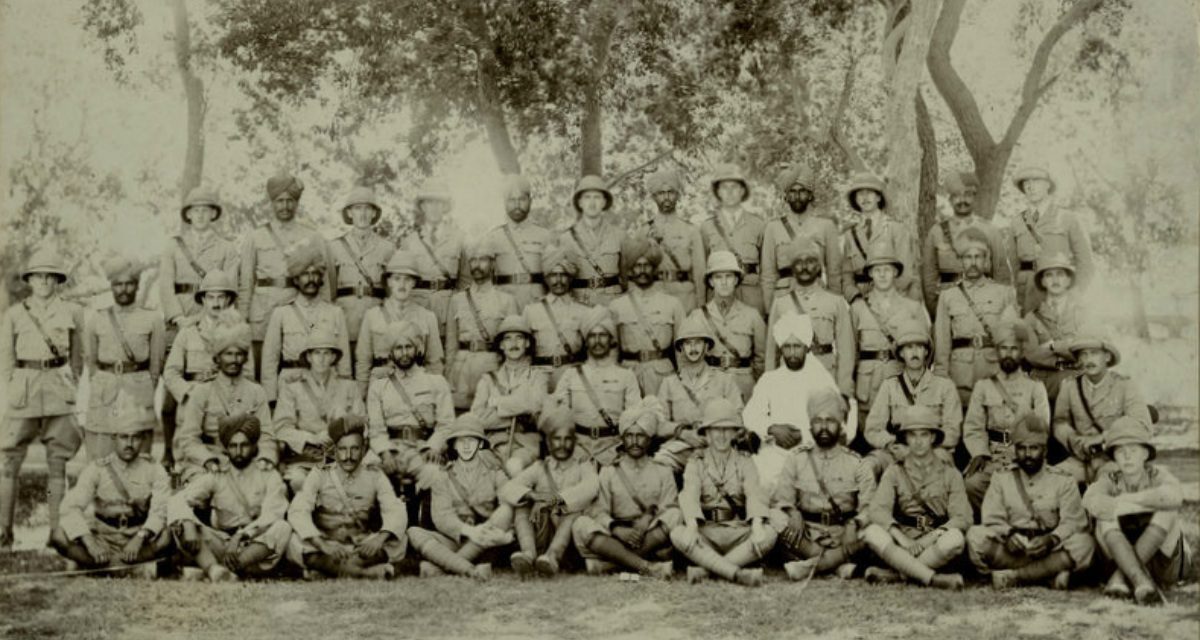Kipling’s fictitious private-for-life in the British Army in India, Terence Mulvaney, would “teach the new recruits how to ‘Fear God, Honour the Queen, Shoot Straight, and Keep Clean.’”
Mulvaney taught four simple and memorable instructions that are the distilled essence of his profession. His leadership philosophy is clearly understood by the new soldier who needs plain, actionable statements of tactics, techniques, and procedures. The interpretation and exploration of them is dynamic as the soldier ascends in experience and responsibility. Each directive stimulates curiosity and reflection, and can be endlessly pondered and discussed. These simple imperatives become guiding principles in a lifelong development of military character, intellect, and effectiveness. A command philosophy of compact statements is a practical field manual of how to soldier, how to follow, and how to lead under a commander. Sadly, command philosophies are often long, esoteric expositions encumbered with for-the-record nods to whatever service department‘s command climate issues are in fashion that day. A long and pedantic document is not quickly grasped, has the air of dogma and finality, and fails to launch.
Mulvaney did not dictate a list of ninety-nine things every soldier should know. He taught only four brief maxims (and, he made them rhyme!). A good communicator can stroke a platitude until it purrs like an epigram, so some petting of the private’s platitudes will unpack some piths of wisdom for writing your command philosophy.
Fear God
The soldier must have a moral compass in order to have the coping skills and moral courage required in a stressful career. You must have a holistic, center-of-gravity purpose in your worldview that anchors your ethic of acceptable and unacceptable behavior. Contemplation of the meaning of life, the universe and everything will steel you to face the risks of combat. You must understand your accountability, and the rewards and consequences for living the values of the military institution.
Your convictions must include an obligation to deliver justice, a respect for people, a passion to serve, and intolerance of evil. Nihilists are not the best selfless servers. As Field-Marshall Bernard Montgomery put it, “For all leadership, I believe, is based on the spiritual quality, to power to inspire others to follow; this spiritual quality may be for good, or evil.” Montgomery’s Doctrine of Command can be read and reread with newly discovered insights at each new level of command and responsibility.
Mutual trust and loyalty between soldiers are the necessary conditions for unit cohesion, and that trust is built on shared values and shared experiences. If the military institution’s values do not marry with your personal values, you will seek bonding elsewhere.
Honour the Queen
The soldier must be totally committed to his duty to selflessly serve the nation. After leading an Army of 40,000 in India and receiving the thanks of Parliament for his victories in 1803, Major General Arthur Wellesley was given command of only a brigade in Europe. A friend asked him if he would stand for such an insulting demotion, and Wellesley responded, “I am nimmukwallah, as we say in the East, that is, I have eaten of the King’s salt and, therefore, conceive it to be my duty to serve with unhesitating zeal and cheerfulness where and whenever the King and his Government think proper to employ me.” Such dedication demands that you be knowledgeable of the national values and goals, laws of war, and the imperatives and prohibitions of military regulation. The entailed risks challenge moral courage more often than physical courage.
Shoot Straight
The soldier must be proficient in individual soldier and leadership skills. Proficiency requires continual training, education, experience, and introspection. No one is ever completely trained and performance can always be improved. You must know the process of planning, preparation, and execution. You must build effective leadership skills and behaviors. You must have an insatiable curiosity about your profession and its strategic environment.
The daily journals of Leonardo da Vinci, the iconic “Renaissance man” who may have been history’s most curious man, contained his lists of what he did not yet know (the known unknowns). The critical thinker would also list his assumptions that must be converted to facts. Leonardo wrote that “Learning never exhausts the mind.”
This notion was perhaps best expressed by General Sir Archibald Wavell. “The commander’s studies must have a background of solid common sense,” he wrote, “and a knowledge of humanity, on whose peculiarities, not those of machines, the whole practice of warfare is ultimately based.”
Keep Clean
The soldier must be physically, mentally, and morally fit to fight. Carefully build your professional stature by being honorable, dependable, and actively engaged. Be indispensible. Grow and guard your personal honor and brand. Remember that one lapse of judgment or discipline can wipe out all achievements, and you will be remembered for only one particular fault.
Habitual introspection regarding purpose and values will develop self-confidence and the sangfroid for cool judgment under stress. Only people who take joy in responsibility can lead under pressure. Replace unhelpful habits and impulses with critical thinking. Plan your professional and personal development around candid self-knowledge and the feedback from people you trust. “All things are ready,” wrote William Shakespeare in Henry V, “if our mind be so.”
So What?
Mulvaney’s ten words are too few to be a complete command philosophy; but, if a picture is worth a thousand words, so is a good maxim. To paraphrase Hamlet, there are more things in heaven and earth, Horatio, than must be spelled out in your philosophy.


